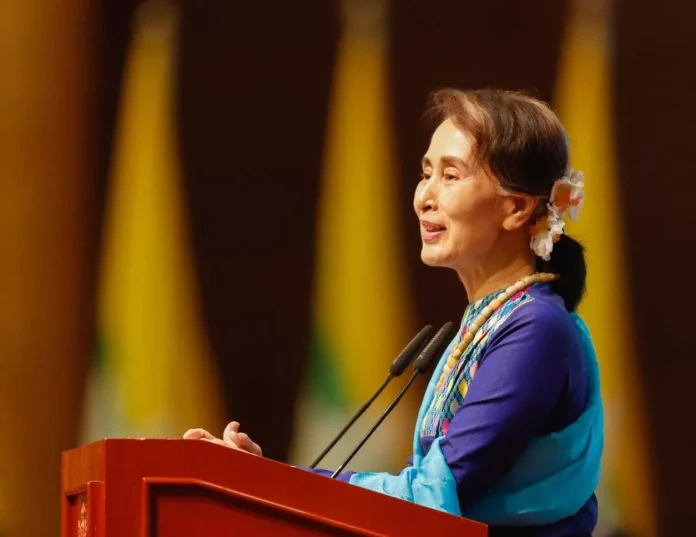NYAPYIDAW, Jan 31: Myanmar’s military government announced on Friday that it would extend the state of emergency for another six months, continuing its rule in preparation for elections it has promised to hold later this year. However, no exact date has been set for the polls, and the country is now entering its fifth year of crisis.
The military declared the state of emergency on February 1, 2021, after arresting the country’s leader, Aung San Suu Kyi, and top officials from her government in a coup that reversed years of progress toward democracy following five decades of military rule. The coup sparked a widespread armed resistance, with ethnic minority militias and the People’s Defense Forces, which support Myanmar’s opposition, now controlling large parts of the country.
While the military government has faced its greatest challenges since taking power and is on the defensive in many areas, it continues to control much of central Myanmar and major cities, including the capital, Naypyidaw. The National Defence and Security Council, led by Senior Gen. Ming Aung Hlaing, decided unanimously to extend the state of emergency, citing the need for more time to restore stability ahead of national elections. The council, while nominally a constitutional administrative body, is effectively controlled by the military.
Under Myanmar’s 2008 army-drafted Constitution, the military can rule under a state of emergency for one year, with two possible six-month extensions before elections must be held. The extension announced on Friday marks the seventh such extension.
Tom Andrews, the UN special rapporteur for Myanmar, condemned the ongoing military rule, calling the situation an “abyss” created by years of military oppression, violence, and incompetence. The United Nations estimates that more than 3.5 million people have been displaced by the ongoing conflict. “Junta forces have slaughtered thousands of civilians, bombed and burned villages, and displaced millions. More than 20,000 political prisoners remain behind bars. The economy and public services have collapsed. Famine and starvation loom over large parts of the population,” Andrews stated.
The state of emergency grants the military complete control over government functions, giving Senior Gen. Ming Aung Hlaing legislative, judicial, and executive powers. Initially, the military had announced elections would be held in August 2023, but the date has been postponed repeatedly, with recent statements suggesting they may take place sometime in 2025. According to the Constitution, the military must transfer government functions to the president at least six months before elections.
The planned elections are widely seen as an attempt to legitimize the military’s rule and secure a result that will ensure the generals remain in power. Critics argue that the elections will neither be free nor fair due to the lack of a free press and the arrests of most leaders from Suu Kyi’s National League for Democracy party.
Moe Zaw Oo, a member of the opposition’s shadow National Unity Government (NUG), declared that opposition groups are preparing to prevent the military-held elections through nonviolent means. The NUG, which considers itself the legitimate government of Myanmar, has unified opposition to the military’s electoral process. “No one from any organization on our revolutionary forces side will accept the illegal election that the military is planning to hold,” said Moe Zaw Oo in an online news conference.

